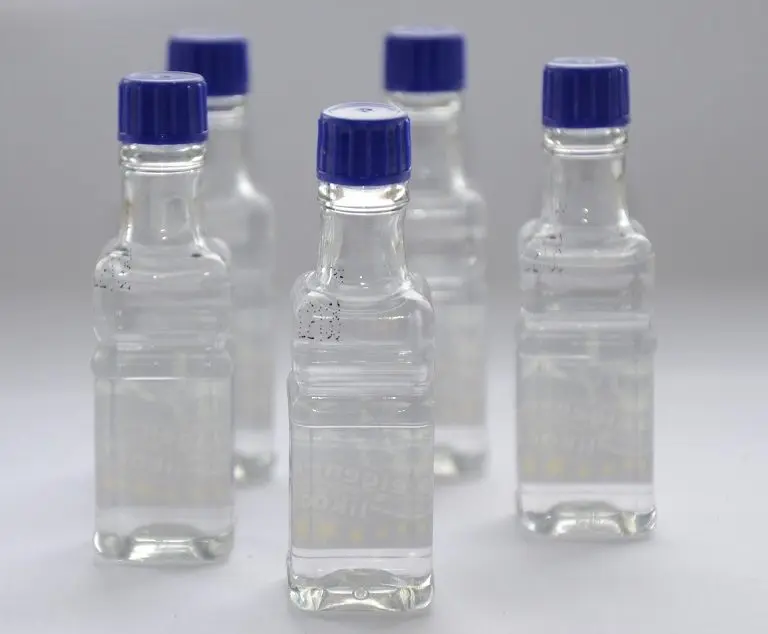Ethyl alcohol is widely used in medicine. Even at a low concentration, an ethanol solution kills bacteria and viruses, so it is used to disinfect the skin, treat surfaces in operating rooms, and sterilize surgical instruments. Alcohol is an antipyretic, anti-shock and decongestant, as well as the main component of tinctures, extracts and other dosage forms for external use. Next, we will figure out how medical alcohol differs from food alcohol and whether it can be drunk.
Since 2017, pure ethanol cannot be purchased at a pharmacy, even with a prescription.
The difference between food and medical alcohol
The myths that medical alcohol is better than usual in quality have been preserved since the Soviet era. In fact, the difference between them is small. Producers of pharmaceutical alcohol are required to be tested for compliance with the GMP (Good Manufacturing Practice) standard issued by the Ministry of Industry and Trade. Due to the large number of requirements for equipment and documentation, not all enterprises decide to obtain a license. Currently (end of 2020), only four Russian plants produce medical alcohol – in Kemerovo, Ryazan, Vladikavkaz and Karachay-Cherkessia, and all of them belong to the pharmaceutical industry.
Ethanol for medicine is allowed to be made only from grain or potatoes. Production consists of three stages:
- raw materials are washed, cleaned, malt extracts with microorganisms are added;
- potatoes or grains are boiled to extract sugar from starch;
- alcohol is distilled from the mash, which is then purified in distillation plants.
Pharmaceutical enterprises have strict requirements for product quality. Alcohol is produced according to a single technology on certain equipment. The finished product should contain nothing but ethanol and water, which is added depending on the desired concentration – from 40% to 95%. Medical alcohol without fail undergoes multi-stage purification, therefore it contains a minimum of impurities.

Edible alcohol is produced using the same technology, however, any vegetable raw materials, including molasses and fruits, are allowed. Enterprises can develop their own specifications and improve the taste of products with the help of additives. Alcohols are divided into subspecies according to the degree of purification. The best of them – “Lux” and “Alfa” – are no worse than their medical counterpart in quality and serve as the basis for premium and super premium class vodka.
Selling medical alcohol in retail is prohibited. Manufacturers send data on production and sales volumes to the EGAIS system, created to control the circulation of alcohol-containing products. However, this does not bother sellers of counterfeit alcohol, who actively sell cans of “medical” alcohol on the Internet. It is dangerous to buy such products, since any batch may contain poisonous methanol, which tastes and smells no different from ethanol.
Is it possible to drink medical alcohol
Aseptic solutions are intended for external use. You can’t drink them in their pure form, since alcohol with a strength of 95% will burn the mucous membranes of the esophagus and stomach. If desired, homemade vodka can be made from medical ethanol by diluting it with water in a ratio of 50:50. Also, medical ethanol can be used to prepare medicinal tinctures. However, for this you need to be sure that the products are manufactured at a pharmaceutical company.
Do not drink medical alcohol that is sold online. Remote sale of alcohol in Russia is prohibited. On online storefronts, you can only book goods, you need to redeem it at an offline point of sale. However, online sales of alcohol in canisters remain high. As a rule, counterfeit products are made in a handicraft way at clandestine distilleries, where the quality is not controlled in any way.
The range of violations at illegal enterprises is quite wide. Manufacturers use low-quality raw materials and untreated water, pour ethanol into ordinary plastic canisters, which is strictly prohibited. The consequences of drinking counterfeit alcohol are liver damage, severe hangovers, and rapid addiction.









